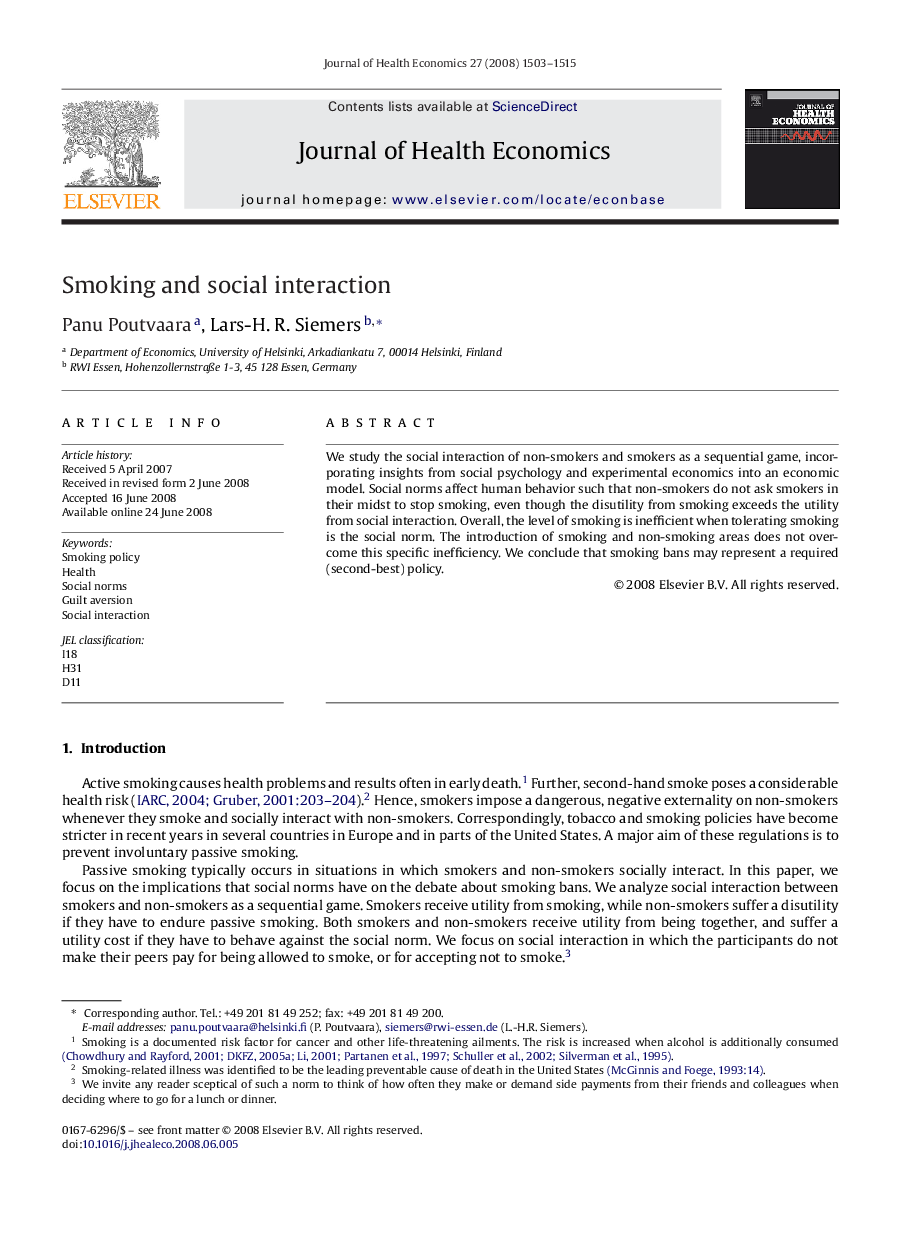| Article ID | Journal | Published Year | Pages | File Type |
|---|---|---|---|---|
| 961627 | Journal of Health Economics | 2008 | 13 Pages |
Abstract
We study the social interaction of non-smokers and smokers as a sequential game, incorporating insights from social psychology and experimental economics into an economic model. Social norms affect human behavior such that non-smokers do not ask smokers in their midst to stop smoking, even though the disutility from smoking exceeds the utility from social interaction. Overall, the level of smoking is inefficient when tolerating smoking is the social norm. The introduction of smoking and non-smoking areas does not overcome this specific inefficiency. We conclude that smoking bans may represent a required (second-best) policy.
Related Topics
Health Sciences
Medicine and Dentistry
Public Health and Health Policy
Authors
Panu Poutvaara, Lars-H. R. Siemers,
